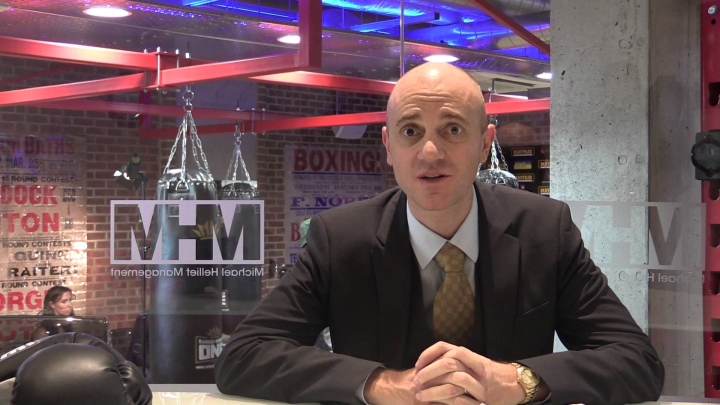By Jack Dyson
Once known for having the largest stable of fighters in the UK, Mickey Helliet has earnt himself a reputation for being one of the most important men in British boxing. He manages a large number of overseas fighters who are called on at short notice to save shows after late withdrawals and injuries.
We’re sat in the Park Lane Hotel, overlooking the hall where Helliet regularly hosts nights of black-tie boxing. Its floors are carpeted, its ceiling and walls high and covered in white and light purple paint, with a number of chandeliers placed evenly apart. Its opulence matches that of the clientele for these nights of boxing –– wealthy City financiers.
Helliet stands at over six feet tall, but his wiry frame makes him appear several inches shorter. Motivated by money, he decided against a career as a solicitor and instead moved into a number of business ventures after he graduated from the University of East London.
“When I’d finished I had already set up businesses and got quite good money out of it,” he says. “I wanted to carry on with law, but I was earning more money than I would have done if I had become a first-year solicitor.” As he’s talking he shifts his wedding ring from one finger to another.
Were you promoting and managing fighters then?
“No, no, no. I started off as a trainer, in fact how I came back into boxing, I…” He swallows, unsure of what to say next. “I set up my businesses and-and, actually I was doing nightclub promoting and stuff like that, making really good money, but I got really depressed.”
He’s now passing the ring between his fingers with greater urgency and starts to slowly sink into the leather of his chair.
“I was living in a bedsit behind King’s Cross at the time,” the man who manages former Anthony Joshua for Raphael Zumbano Love continues, “and I knew this wasn’t where I wanted to live.”
Pausing, he sniffs.
“I actually got really depressed because I lost my way a little bit. I think it takes a lot of maturity to live when you’ve got a lot of money coming in. I didn’t earn money as a boxer; I only ever boxed amateur, turned pro and failed the brain scan.”
Wait, you failed the brain scan?
“Yeah, I’ve got hydrocephalus – water on the brain. I was 23 when I had my scan. I fainted when they told me, passed out,” he says, speech becoming disjointed.
“[Boxing was] the one thing that had actually stayed with me all my life, that was like my friend through everything. It was always there and the ring was the place I felt safest because I was suddenly in control of things there and to have that taken away had a horrible effect on me.”
Did you ever self-harm or have suicidal thoughts?
“I can’t speak about that. Yeah, I c-can-can’t speak about that at all,” he said, looking into his lap.
Having afflicted the likes of Ricky Hatton and Oscar De La Hoya, depression has been regularly talked about in the boxing world. Helliet’s battle with the illness appears similar to theirs as, once they lost what the training gave them and the highs of a fight, they felt aimless, lost.
We don’t return to the subject and instead focus on his liaisons with a counsellor from whom he sought help when he was at his lowest ebb.
“So the counsellor I went to told me that I have a mild version of depression but he said: ‘When you talk about boxing your whole body language changes, your facial expression changes and your enthusiasm for life completely changes, why don’t you do something in boxing?’”
Initially, Helliet didn’t believe a stint as a trainer would help him; but he grew to love it, training children at St Albans, Dale Youth and Finchley ABC. He enjoyed imparting his knowledge onto them and seeing them grow as fighters. Soon, though, many of them set their sights on turning professional and were asking him to manage them. Instead, he advised them to talk to a handful of established managers he knew personally.
“My worry was that I didn’t know enough,” he explained. “But one day a boxer came up to me and said: ‘You’re not going to do a worse job than what that manager just did with that fighter and now you’re telling me to speak to him –– you do it.’”
Helliet admits that the beginning of his managerial career did not run smoothly, as he struggled to get to grips with boxing’s shady characters. But as he went on to form his own promotional company, Hellraiser Promotions, he started making more money for himself as well as his fighters.
Soon enough, attention switches the topic to the future of Hellraiser Promotions. He now has his eyes on nurturing talent and producing more Area, British, Commonwealth and European champions, singling out the likes of the current Southern Area titlist Asinia Byfield, unbeaten super-welterweight and super-middleweight prospects Aarron Morgan and Darryll Williams. As he’s discussing this, he admits, “I’m not feeling desperate anymore, quite the opposite, I’ve been happy.”


ADD COMMENT